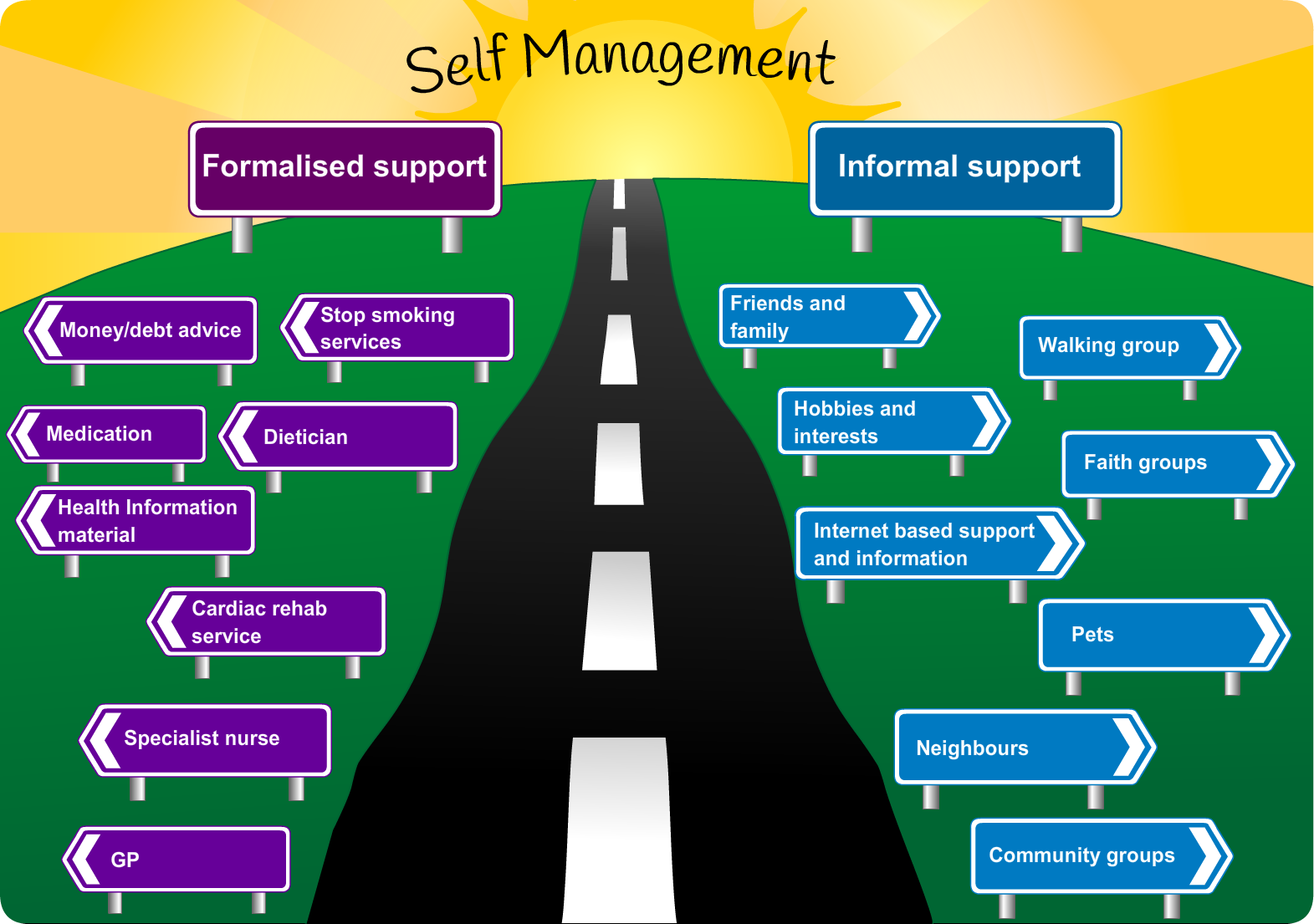The person is in the driving seat on this road to self management. On each side of the road consider the various people that may be important to the person.
Formalised Support: This includes structured services run by the NHS, Local Authority, voluntary organisations and other independent groups.
Informal support: This includes the large variety of support around us – family, friends and within our communities.

| Left hand side signs – “formalised support” | Right hand side signs – “informal support” |
|---|---|
|
|
 Pulse point
Pulse point
Although it is important to teach or signpost people towards learning practical skills to manage their heart condition, effective self management will only be achieved if the relationship between patient and health care professional is truly mutual and collaborative.
Promoting self-management of health begins with the very first contact you have with a patient. Your style of communication will indicate to the patient that the development of their care is something that will be a partnership between you both. You have expert knowledge and skills but the patient also have an expert understanding of their own needs and priorities.
Consider how you will begin your consultation in order to promote this partnership approach? What will you say and/or do?
“answer” – Try using phrases such as “What would you like us to discuss/focus on/look at today?” or “What are the things that are concerning you about your condition right now?” – begin to show that it the patients issues that matter. It is to be their agenda – not yours – that is the priority. This doesn’t mean that your issues are ignored – just that they take second place!
Page last reviewed: 18 May 2020


